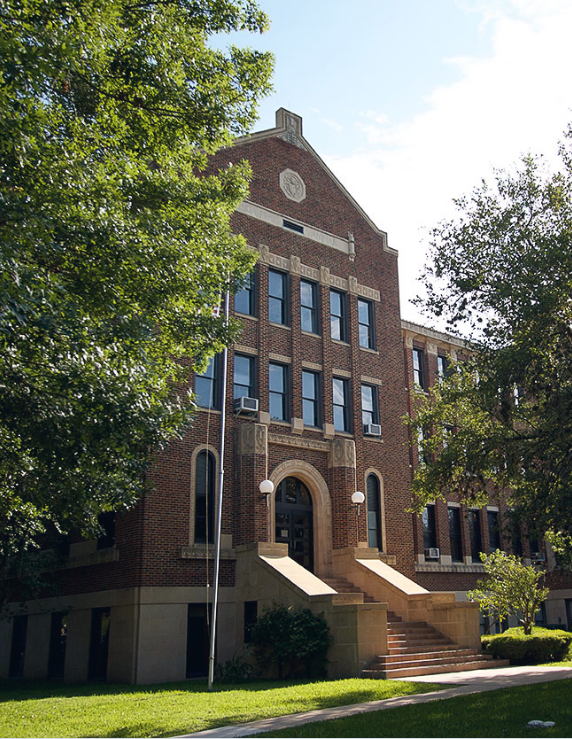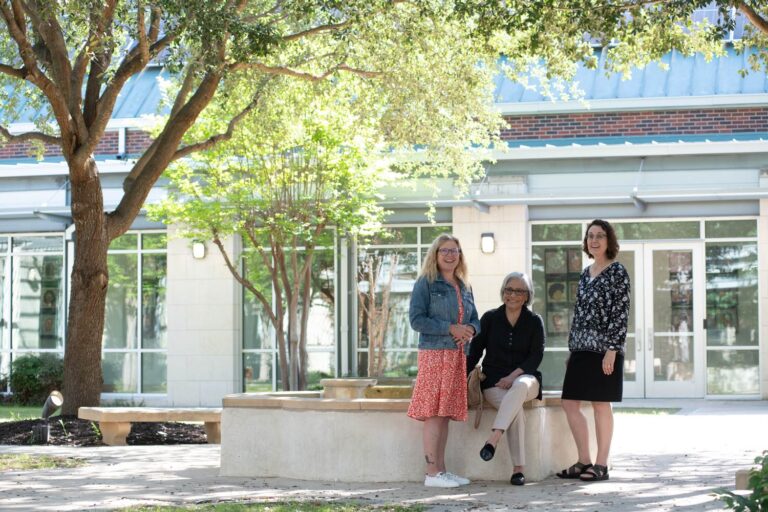Father Ron Rolheiser explained the charism of the Missionary Oblates of Mary Immaculate in the larger context of all religion and spirituality in a recent lecture during the Mazenodian Family Vocation Congress at Oblate School of Theology’s Whitley Theological Center.
A charism is a spirituality – an attempt by a person of group to meet and experience the presence of God, others and the cosmic world in order to come into a community of life and celebration with them, the OST president explained.
Spiritualities are disciplines, he explained. Christianity, Buddhism, Hinduism, Islam and Native American religions are spiritualities in a more generic sense, but within each religion are more specific spiritualities. Specific spiritualities within Christianity include Roman Catholic, Protestant, Evangelical and Congregationalist. Inside Catholicism are many specific charisms or spiritualities, including charismatic, Franciscan, Jesuit, Carmelite, Oblate, Opus Dei and Focolare, just to name a few, he said.
Fr. Rolheiser defined the Oblate spirituality by five characteristics: being missionary, appropriating an option for the poor, making the Cross central, making apostolic community an ideal and having the Blessed Virgin Mary as its patroness.
“A missionary is one who goes where he or she is needed but not wanted, and who leaves when he or she is wanted but not needed,” he explained, recalling Jesus’ commission to ‘preach the Gospel to all creation,’” the priest explained.
Citing Jesus’ mandate from God to proclaim good news to the poor, freedom for prisoners and recovery of sight to the blind, he declared that “any proclamation of the Gospel that is not good news to the poor is not the Gospel of Jesus Christ.”
He noted that St. Eugene de Mazenod, who founded the Missionary Oblates of Mary Immaculate, “took Christ’s words literally and took them to heart. They ground the Oblate charism and constitute its essence.”
This requires asking, “Who are the poor?” The answer, as shown in St. Eugene’s historical context is, “the excluded ones,” the OST President continued, adding: “The Oblates today can be proud that in so many places, they are found on the margins of society. If you go into the inner cities in Leeds, Dublin, Edinburgh, Lahore, Vancouver, Edmonton, Laredo or Mexico City, go to the parts of the city where the police are afraid to go, and you’ll find the Oblates ministering there,” Fr. Rolheiser said.
However, he pointed out that this comes at a cost in several ways. It is a struggle to be with the marginalized without becoming marginalized oneself, to make a vow of love and not of alienation; it is a struggle for vocations and financial resources, and a struggle of being away from centers of power and prestige where influence could be very helpful to the poor, he explained.
The cross, he said, is the key that unlocks the understanding of everything else in ministry, the priest said. De Mazenod grasped this and made the cross the center of his own spirituality and that of his congregation.
“This is the very antithesis of any ‘prosperity gospel’ – those spiritualities whose preaching would imply that ‘if we follow Christ, we will be specially rewarded with good fortune in this life. The cross offers us a share in Christ’s life, ministry and suffering, not special favors in this life.,” Fr. Rolheiser explained.
He added that the cross of Christ and Jesus’ comment that the disciple must endure what the Master endures. Emphasizing the point, he quoted a comment by Fr. Daniel Berrigan: “Before you get serious about God, first consider carefully how good you’re going to look on wood.”
This, too, comes at a cost, the OST president noted. An emphasis on the cross, accepting pain and humiliation, draws few people in most affluent circles and is radically anti-cultural in most places in the world; it can leave Oblates culturally marginalized.
Holding the apostolic community as an ideal harks back to Acts 4, in which the writer says, “The congregation…was one in heart and soul. No one claimed any of his possessions was his own, but they shared everything they owned.”
Scripture scholars agree that this text expresses the idea of the early Christian community as opposed to its actual reality. It expresses the necessity of community for effective ministry and indeed as a very constitutive part of Christian discipleship, Fr. Rolheiser explained.
He noted that the Oblates in 1992 appropriated a quote from Dutch theologian Edward Schillebeeckx and made it their own: “What you dream alone remains a dream, but what you dream together can become a reality.” The Oblate charism is predicated on the conviction that compassion must be collective to be effective, the priest added.
Finally, Fr. Rolheiser noted that Mary is not only the patroness but the mysticism of the poor. “What ultimately endears Mary to the poor is not her singular dignity as the Mother of Jesus, but her faith inside of poverty and helplessness,” he said.
In essence, the priest elaborated, what Mary did at the foot of the cross was to say, “I can’t stop this crucifixion; nobody can. Sometimes, darkness will have its hour, but I can stop the hatred, bitterness, jealousy and heartlessness that caused it by refusing to give it back in kind; by transforming negativity rather than retransmitting it; by swallowing hard in silence and eating the bitterness rather than giving it back in kind.”
Fr. Rolheiser said Mary’s behavior radiated everything that was antithetical to a crucifixion: gentleness, understanding, forgiveness, peace, light, courage and a helplessness that draws upon faith and hope, the helplessness of the poor who are being crucified everywhere, he said.
J. Michael Parker, Director of Communications



